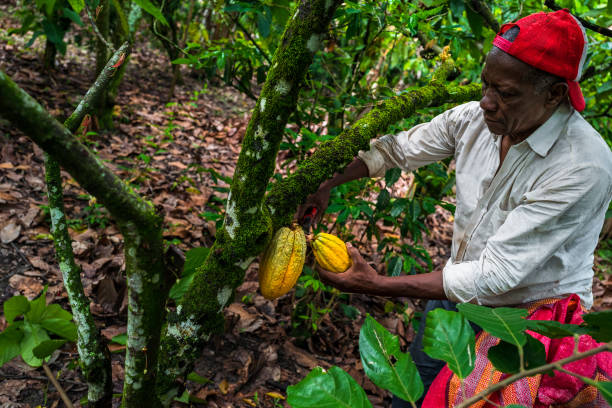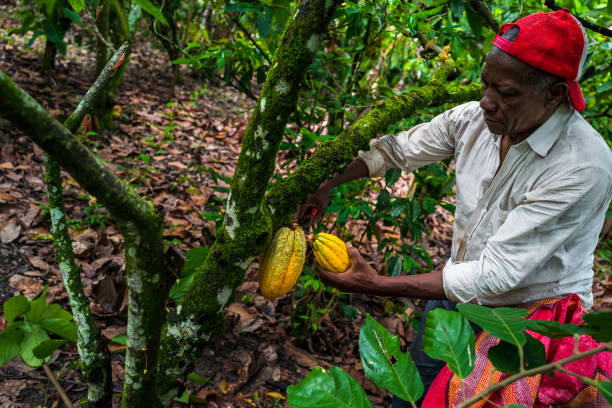Cameroon’s Southwest region — a key cocoa-producing area — is facing a severe outbreak of black pod disease, a fungal infection that devastates cocoa pods and trees. Known scientifically as brown rot, the disease thrives in prolonged wet conditions. Weeks of relentless rainfall since July have accelerated its spread across major cocoa hubs such as Muyuka, Mbonge and Kumba.
Agricultural experts warn that the crisis is being compounded by the widespread use of counterfeit agrochemicals. Many small-scale farmers, struggling to afford certified treatments, are instead resorting to cheaper, unregulated fungicides smuggled in from Ghana and Nigeria. This not only undermines disease control but may also worsen soil and crop health in the long term.

According to cocoa consultant Epie Promise Ngolepie, farmers’ resistance to expert recommendations is another obstacle: “Smallholder farmers don’t want to follow expert advice because they think they know better,” he said. Analysts caution that unless the government strengthens quality control on agro-inputs and improves farmer outreach, Cameroon risks significant losses in both cocoa yields and export revenues.



